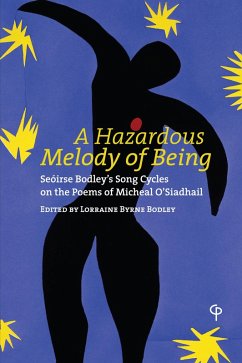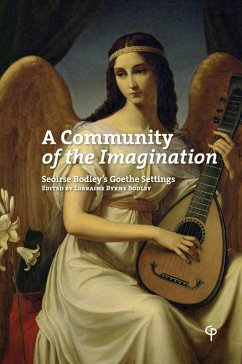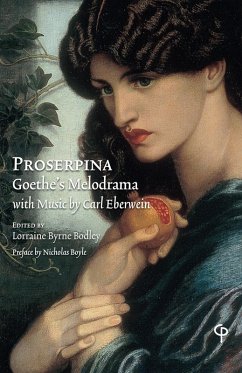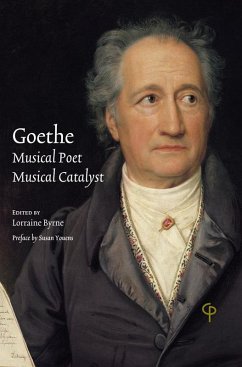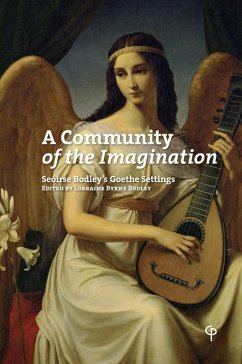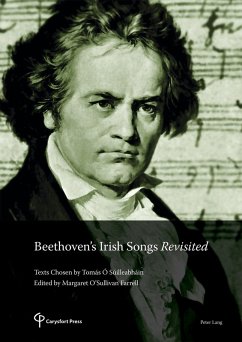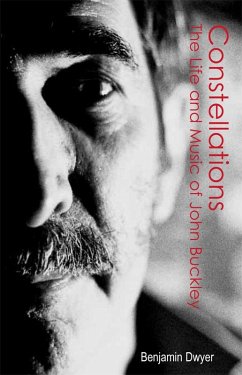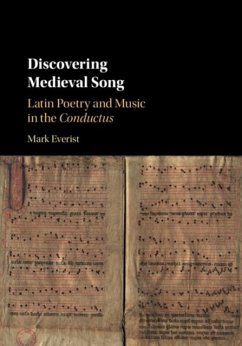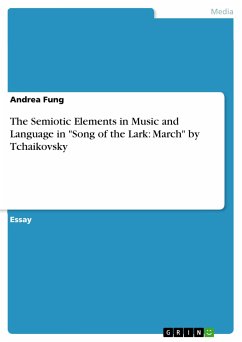
A Hazardous Melody of Being (eBook, PDF)
Seóirse Bodley's Song Cycles on the Poems of Micheal O'Siadhail
Versandkostenfrei!
Sofort per Download lieferbar
Statt: 28,90 €**
24,95 €
inkl. MwSt.
**Preis der gedruckten Ausgabe (Broschiertes Buch)
Alle Infos zum eBook verschenkenWeitere Ausgaben:

PAYBACK Punkte
12 °P sammeln!
Sedirse Bodley is one of the best-known senior figures of contemporary music in Ireland. This book seeks to examine his engagement with the poetry of Micheal O'Siadhail and the making of these song cycles. It assesses the joint contribution to Irish art song and seeks to understand its roots in and departure from European tradition.This apograph is the first publication of Bodley's O'Siadhail song cycles and is the first book to explore the composer's lyrical modernity from a number of perspectives. Lorraine Byrne Bodley's insightful introduction describes in detail the development and essence...
Sedirse Bodley is one of the best-known senior figures of contemporary music in Ireland. This book seeks to examine his engagement with the poetry of Micheal O'Siadhail and the making of these song cycles. It assesses the joint contribution to Irish art song and seeks to understand its roots in and departure from European tradition.
This apograph is the first publication of Bodley's O'Siadhail song cycles and is the first book to explore the composer's lyrical modernity from a number of perspectives. Lorraine Byrne Bodley's insightful introduction describes in detail the development and essence of Bodley's musical thinking, the European influences he absorbed which linger in these cycles, and the importance of his work as a composer of Irish art song. She asks an array of questions: Does song play a new role in twentieth-century music or was this the age, as many have insisted, that bears witness to the «death of song»? How does contemporary Irish art song inscribe individual concerns and mirror the influence of dominant social trends through its music and its texts? She demonstrates that the answers to such questions illuminate the context in which these cycles were created, and how they were valued and viewed. Through a blend of close analysis of Bodley's songs and wide-ranging engagement with both poetry and music, this book sheds new light on Bodley's integral part in fashioning Irish art song. It analyses the way Bodley's song has been harnessed both to legitimate and to challenge national art song. And it identifies elements of Bodley's musical style which are shaped by European tradition.
Beyond such musico-poetic analysis, Lorraine Byrne Bodley's reading of the threefold roles of continuity, gradual change, and revolution opens up a «braided history» of Irish art song, where song is not an aesthetic given but a means to understanding the changing patterns of life. She argues convincingly that an understanding of the way in which Irish society has perceived song in recent centuries is available through a consideration of song as social document, and in her appraisal of Bodley's O'Siadhail settings she considers the importance of these song cycles as a reflection of Ireland's rich cultural history.
This apograph is the first publication of Bodley's O'Siadhail song cycles and is the first book to explore the composer's lyrical modernity from a number of perspectives. Lorraine Byrne Bodley's insightful introduction describes in detail the development and essence of Bodley's musical thinking, the European influences he absorbed which linger in these cycles, and the importance of his work as a composer of Irish art song. She asks an array of questions: Does song play a new role in twentieth-century music or was this the age, as many have insisted, that bears witness to the «death of song»? How does contemporary Irish art song inscribe individual concerns and mirror the influence of dominant social trends through its music and its texts? She demonstrates that the answers to such questions illuminate the context in which these cycles were created, and how they were valued and viewed. Through a blend of close analysis of Bodley's songs and wide-ranging engagement with both poetry and music, this book sheds new light on Bodley's integral part in fashioning Irish art song. It analyses the way Bodley's song has been harnessed both to legitimate and to challenge national art song. And it identifies elements of Bodley's musical style which are shaped by European tradition.
Beyond such musico-poetic analysis, Lorraine Byrne Bodley's reading of the threefold roles of continuity, gradual change, and revolution opens up a «braided history» of Irish art song, where song is not an aesthetic given but a means to understanding the changing patterns of life. She argues convincingly that an understanding of the way in which Irish society has perceived song in recent centuries is available through a consideration of song as social document, and in her appraisal of Bodley's O'Siadhail settings she considers the importance of these song cycles as a reflection of Ireland's rich cultural history.
Dieser Download kann aus rechtlichen Gründen nur mit Rechnungsadresse in A, D ausgeliefert werden.




